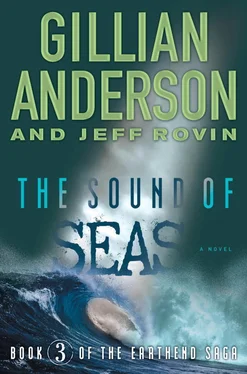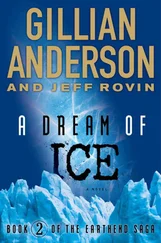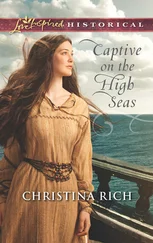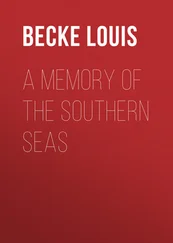Whether Caitlin wanted to or not, she was going to have to try and hold on long enough to determine whether it was Vilu or Jacob who was in the boy’s body.
“How is your strength?” Qala asked as they walked.
“All right, so far,” she replied.
“The tower is quite near,” the Standor said. “But if you like, I can send a carrier for you.”
“I’m able to make it,” Caitlin assured her.
Caitlin had no idea what a “carrier” might be until they reached another courtyard. The open, sun-drenched area was at least three times the size of the pool yard and there were at least twenty cigar-shaped airships about the size of minivans. She focused on the objects, not the light; it was disorienting to imagine that this is the same sun, the same light, that would one day shine in her own welcoming apartment, light the breakfast table she shared with her son.
The airships were hovering an average of ten feet above the ground. Plants that resembled modern jasmine were being unloaded from nets that hung tightly between them. Indeed, the balloons themselves bore a slight resemblance to their cargo: there were leaflike fins high on the envelopes, fore and aft, presumably to control the vessel in the strong atmospheric currents as it hovered in the clouds.
Jasmine , she thought. It had been present in some form since she had first met Maanik in the Pawars’ apartment. Was she drawn to it, it to her, or was it a coincidence? Or was she simply noticing it in her time because its presence here was informing the future… her future?
Caitlin couldn’t quite grasp that idea, the mechanics of that idea, so she forced herself to stay mentally rooted in this place—observing, collecting information, seeking some way to rekindle her energies.
Beyond the courtyard, down a wide, open road to the shore, Caitlin saw dozens of surface vessels, their small nets full of fish. They were riding waves that had a different action from any she had ever seen: the sea was smooth and then, about ten yards from shore, waves rose up and smashed down as if they were pumped from some deep coastal trough. She had no way of knowing whether it was a local or continental phenomenon. Local, most likely, since ships were coming to shore off to the sides. She wondered if it were artificial since the breakers created a breeze that blew a refreshing coolness into the courtyard and chased away the smell of fish. Heat, odor, and spoilage—as heralded by the obsessed Lasha— would be a problem during interminable hours of daylight.
Caitlin also saw more airships high in the sky, among the clouds. The same kinds of nets were strung between them with foliage of all kinds crowded against all four sides of each. Apparently, the clouds were a more accessible source of freshwater than whatever ice surrounded Galderkhaan. From the barrels that lined the streets she assumed that the harvest here was primarily jasmine, which must grow readily in this climate, by these means, and was light enough to be supported by the airborne nets.
It was a small but impressive spectacle of agrarian and oceanic commerce, as well as simple but effective engineering. Yet the tableau was almost unnaturally quiet, at least to her New York–accustomed ears; even Haiti and Phuket had more ambient noise than this with cars, radios, jets, helicopters, cell phones, and the other trappings of modern civilization. As far as she could see there weren’t fuel- or even steam-powered apparatuses; all the work was being managed by well-oiled pulleys, by weights and counterweights, and by hand. She also did not see smokestacks or chimneys, or even a hint of pollution corrupting the blue of the sky. Given what she knew of the Source, and what Lasha had said, the dwellings in Galderkhaan were apparently warmed during winter by subterranean pools of magma and water.
It was a clean, efficient way of living—more so, it seemed, than other ancient civilizations of more modern times.
And it is about to end , she could not help thinking.
Caitlin felt sick in her soul, even as she reminded herself that it was a Galderkhaani who would cause the catastrophe. Though she could not help but remember, with awful clarity, the vision of the dying as they tried to save their souls through the ritual of cazh , even as their bodies turned to ash, and how she had worked so hard to prevent that ascension—
“Now that we’re away from the others, I would like you to tell me the truth about the bracelet,” the Standor said. “About where you come from.”
“I don’t understand.”
“You don’t look like a thief. And I do not think you are a liar.”
“It’s true, I am neither,” Caitlin assured her. “At least, I don’t think I am a thief. I truly do not know. What prompted you to ask?”
“Your jewelry is not made of Falkhaan silver.” She regarded Caitlin. “I have friends who are miners here. I know the local minerals and their impurities. The name on the bracelet is someone not from around here, or she would be known. You yourself say that you are from elsewhere. That you have a son elsewhere. Yet you also have some connection with this boy, who has never left this village. I saw it in the way you touched him.”
“That is true.”
“And being true, there must be an explanation.”
“I wish I had one,” Caitlin said, and meant it. “I felt as if I know him. Standor , maybe you can help me. You must have traveled the continent. Have you ever met anyone who has lost their memory?”
“Once, when I was still a novice,” Qala said. “I met a Priest. He was experimenting with a ritual and emerged from it saying strange things about other lands… nothing anyone could understand. And he couldn’t remember who he was, even when others told him.”
“Is this Priest still alive?”
“I don’t know,” the Standor replied. “The last I heard of him, his body was alive but he neither spoke nor responded to any kind of stimulus.” Qala regarded Caitlin across Vilu’s back. “Do you think you participated in an experiment of some kind?”
“Again, I don’t know,” Caitlin replied.
“And… north,” the Standor said. She looked out across the sea. “I have flown a considerable direction to the north. There is nothing. Nothing except floating mountains of ice, great sea beasts, and no birds. If there were land, there would be birds. Yet you say you come from there.”
“I—I may have been confused,” she said.
“I believe you have made yourself a crossed net line,” Qala said.
“I’m sorry?”
“When an airship turns suddenly, without notifying its companion, the net between them gets tangled,” the Standor told her. “I suspect you just told a lie to protect a truth.”
Qala didn’t press Caitlin, for which the psychiatrist was grateful. It was the mark of a wise and seasoned commander. Reading about the Vikings to try and understand Galderkhaan, Caitlin had learned that hands were axed for theft. But shipboard, one-handed sailors were of little use, so captains learned to accept small lies told from a crew that dipped, without permission, into the stores of grog or cheese. Qala had just done that for her.
They rounded the end of the street and turned to a road along the coast. The waves were indeed tame beyond the natural horseshoe-shaped harbor, but the sudden expanse of blue-white ocean was not what caught her eye. Caitlin and the Standor were making their way toward a column that was roughly three hundred feet high. It was a smaller, slimmer version of the tower of the motu-varkas , in which she had confronted Pao and Rensat. Her pace slowed as she took in the spectacle of the great airship moored to the top, like some tamed, dark storm cloud, its envelope being replenished by tubes that ran from the nose into the depths of the tower. The airship was, in effect, a highly elongated hot-air balloon, elegant in its simplicity.
Читать дальше












